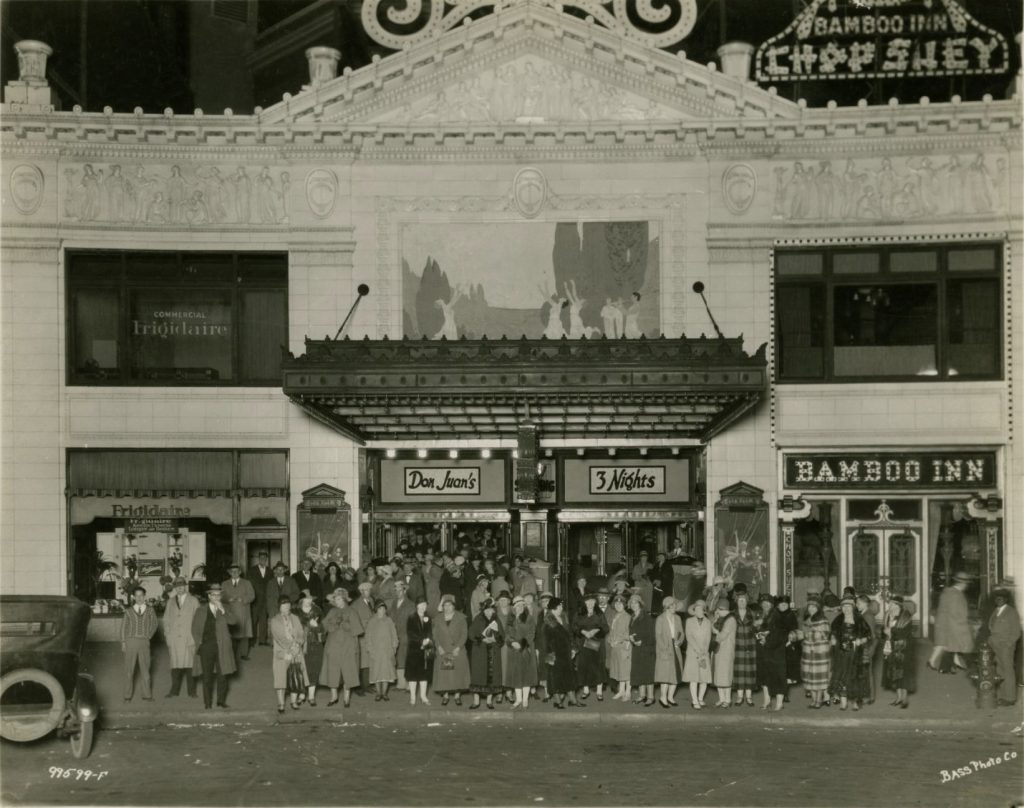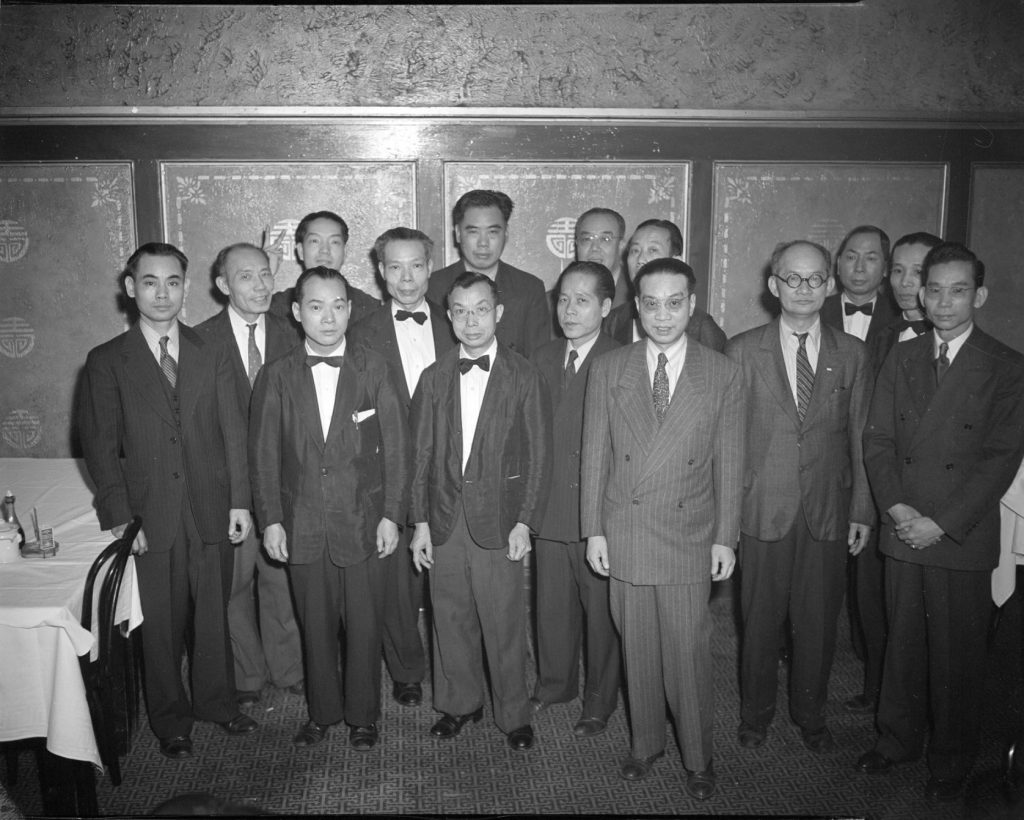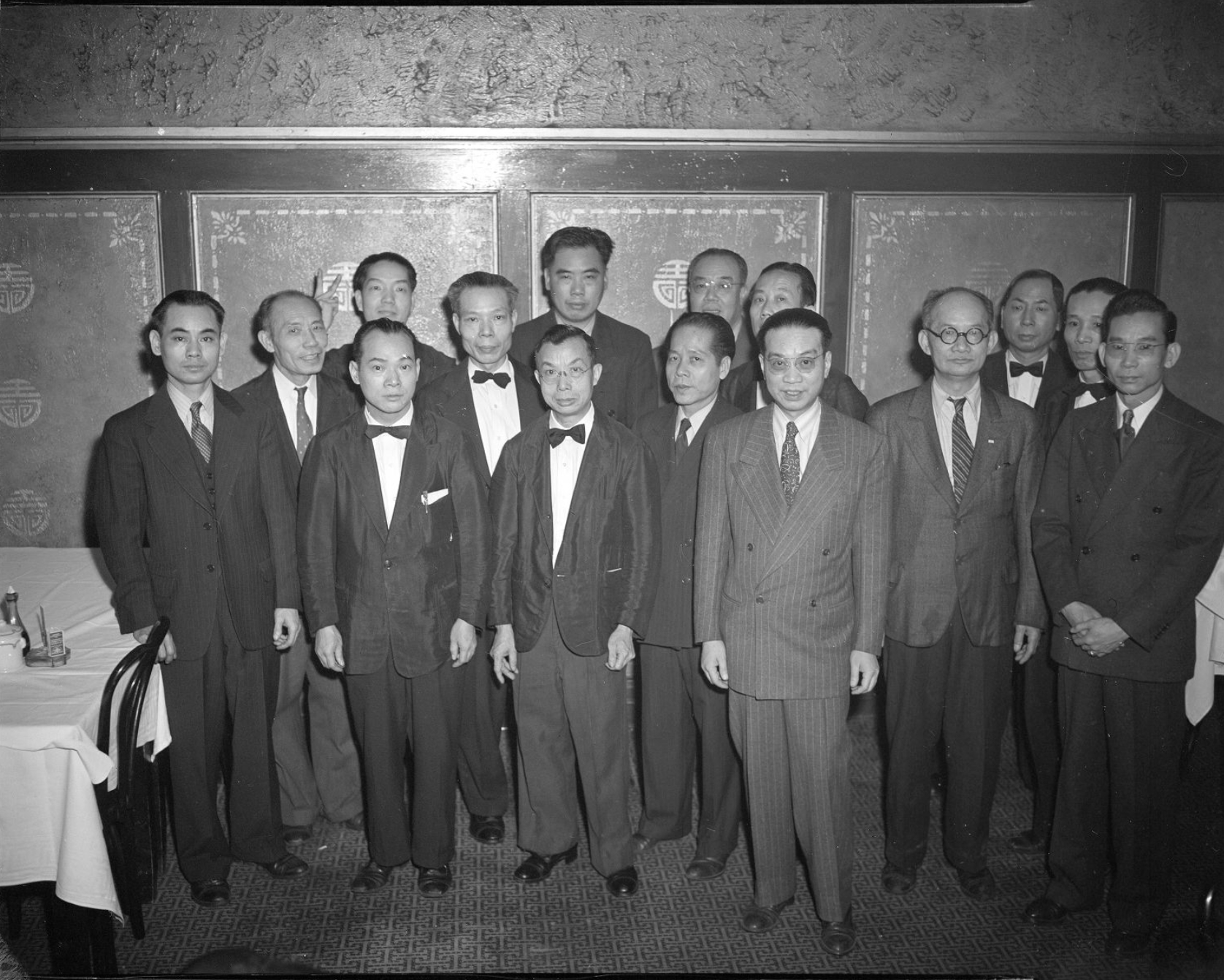The Bamboo Inn, a Chinese American restaurant at 39 in the building opened on July 13, 1918. The two-story restaurant featured a resident orchestra stationed on the first floor, authentic Chinese décor, a bamboo balcony cantilevered over the first floor, and a large exterior sign reading “Chop Suey.” George Gong, William Whie, and Jim Lum owned the restaurant, with Gong serving as manager. Despite the restaurant’s location within blocks of the , , and numerous hotels, the men dissolved their partnership within a year and sold the restaurant to the Chicago-based Chinese American group, the Tuen Hip Wey Association.

The Tuen Hip Wey Association followed a business model that Chinese restaurant owners devised after a federal court added restaurants to a list of businesses that qualified for special merchant visas in 1915. These visas allowed restaurant owners to travel to China, bring back employees, and reenter the United States.
Qualification for merchant status came with a laundry list of criteria that restaurant owners had to meet. First, one major investor in the restaurant had to manage a high-grade restaurant full-time. Furthermore, the major investor could not engage in any other type of work in the restaurant during that period. Lastly, at least two white witnesses had to vouch for the investor’s integrity. Chinese restaurant owners typically dealt with white vendors who later testified on behalf of the Chinese person’s work ethic and compliance with the government’s criteria. A luxury restaurant required start-up capital between $90,000 and $150,000 which led Chinese people to pool their money to form partnerships to start a restaurant. The Tuen Hip Wey Association followed this method, pooling money from Chinese and American restaurant owners and Chinese students to purchase and operate the Bamboo Inn.

The Tuen Hip Wey Association changed most attributes of the Bamboo Inn upon acquisition of the venue in November 1919. The group replaced the bamboo décor with cherry and marble finishes and added booth-style seating. Head chef Henry Shinohara introduced a new menu of Chinese American and French cuisines. The second floor was rebranded as Club Orientale in 1932.
As a display of civic-mindedness, the Bamboo Inn hosted civic group meetings and banquets for mainstream “white” organizations such as the Daughters of the Union. The owners of the restaurant paid for newspaper ads supporting the efforts of American soldiers during World War I. During World War II, twenty employees raised more than $2,000 for the “Back The Attack” war bond drive as a demonstration of their support for the American war effort.
Despite the myriad displays of patriotism over the years, the restaurant faced accusations of uncleanliness and episodes of theft and violence. In December 1920, a newspaper ad alleged that the restaurant served unwholesome food to its guests when a patron fell ill after eating at the Bamboo Inn. Y. Chung, a waiter and stockholder in the restaurant, was charged with this offense, but a special judge declared that Deputy Prosecutor Ralph Spaan had to file charges against the major investor in the restaurant, not a shareholder. Thieves broke into the restaurant and attempted to steal money locked in a safe in August 1926. Unable to open the safe after battering its combination lock, the burglars carried a cash register to the rear of the restaurant and smashed it open, only to find it empty. They ransacked the place causing less than $100 in damage to the safe and cash register. In 1927, a hammer-wielding man attacked Y. Chung in the restaurant kitchen one night. Despite these incidences, the restaurant continued to draw a steady stream of patrons. Yet, the owners of the Circle Theatre Building decided not to renew the restaurant’s lease upon its expiration in 1946.
The Bamboo Inn relocated to the , also along Monument Circle. However, the city demolished the hotel in 1948, forcing the restaurant to move again. That same year the Tuen Hip Wey Association dissolved. Some of the partners in that group banded together to reopen the Bamboo Inn at 138 N. Meridian Street. In the 1950s, the restaurant moved further north to 2133 N. Meridian Street.
The last known owner of the Bamboo Inn was Henry Guy Chung, an original member of the Tuen Hip Wey Association. He sold the venue to Irving Chin who renamed the venue Jong Mea in 1961. Many generations of the Chin family operated Jong Mea until its closure in 1998.
FURTHER READING
- Martinez-LeGrand, Nicole. “The Famous Bamboo Inn Restaurant: 1918-1961.” Indiana Historical Society, May 13, 2020. https://indianahistory.org/blog/the-famous-bamboo-inn-restaurant-1918-1961/.
CITE THIS ENTRY
APA:
Martinez-LeGrand, N. (2023). Bamboo Inn. Encyclopedia of Indianapolis. Retrieved Jan 31, 2026, from https://indyencyclopedia.org/bamboo-inn/.
MLA:
Martinez-LeGrand, Nicole. “Bamboo Inn.” Encyclopedia of Indianapolis, 2023, https://indyencyclopedia.org/bamboo-inn/. Accessed 31 Jan 2026.
Chicago:
Martinez-LeGrand, Nicole. “Bamboo Inn.” Encyclopedia of Indianapolis, 2023. Accessed Jan 31, 2026. https://indyencyclopedia.org/bamboo-inn/.

Help improve this entry
Contribute information, offer corrections, suggest images.
You can also recommend new entries related to this topic.
